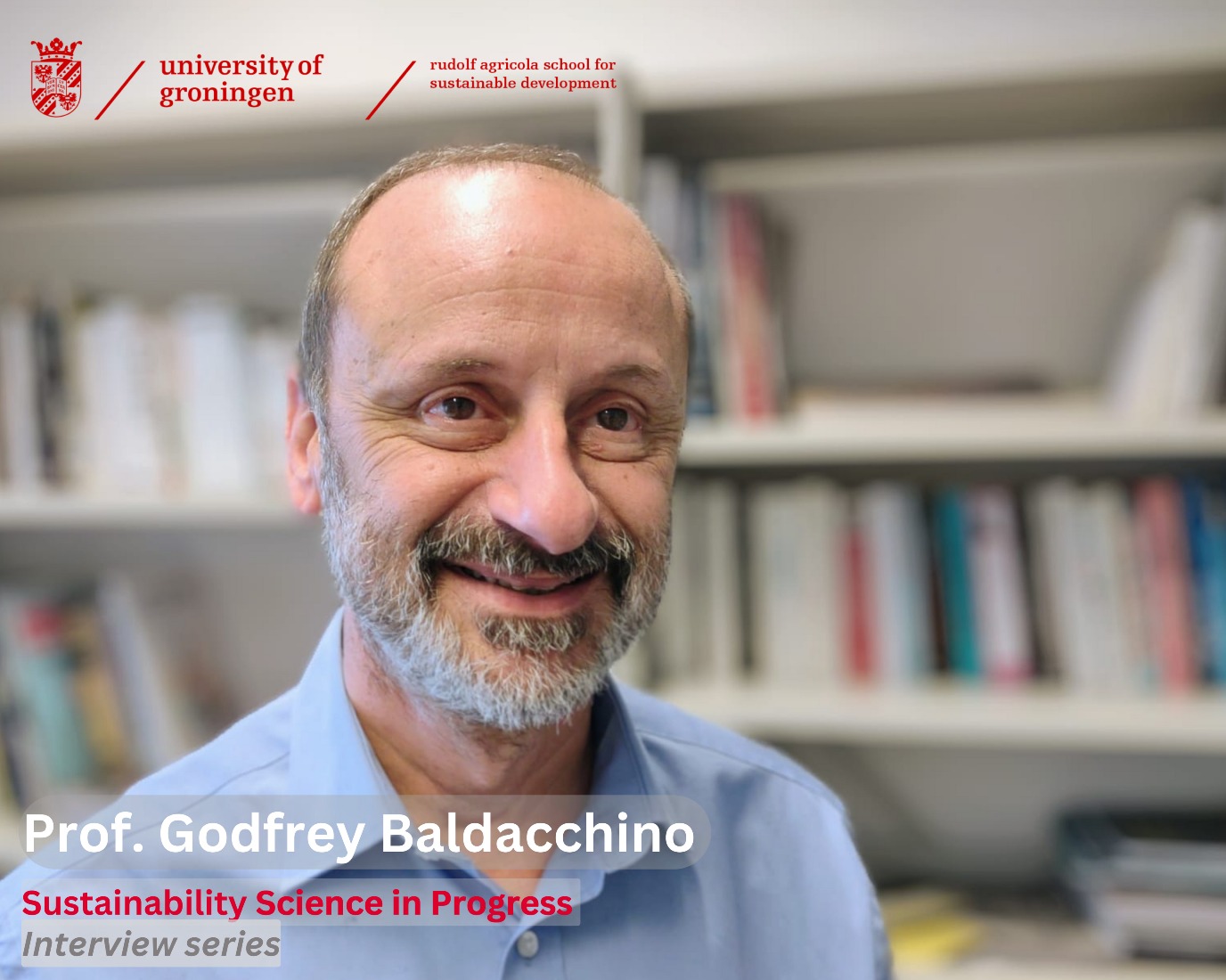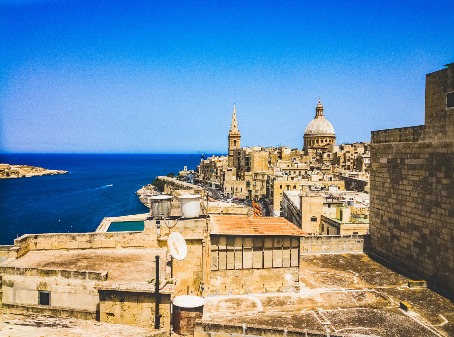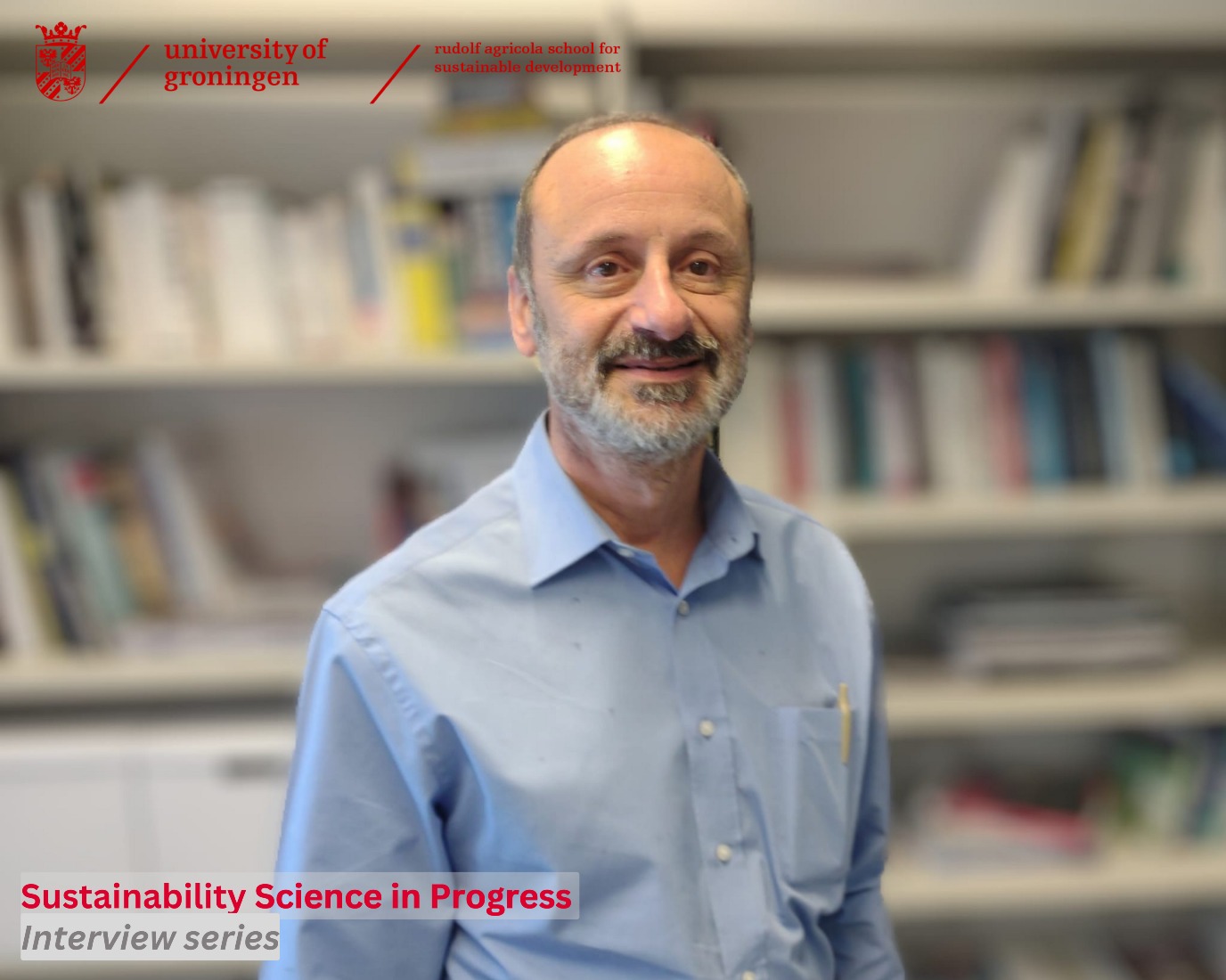‘Limited resources but infinite possibilities.’ | Interview with prof. Godfrey Baldacchino on the importance of Island Studies

Interview: Marco in 't Veldt
Islands have long inspired philosophers and scientists, from Plato's Atlantis to Thomas More's 'Utopia' and the adventurous tales of 'Treasure Island' and 'Never Never Land.' Islands are like a blank yet enticing canvas where thinkers explore themes of survival, self-reflection, and solitude.Think of the narrative of Robinson Crusoe, stranded on an uninhabited island. The island setting allows Crusoe to be entirely isolated, providing the author with the opportunity to delve into themes of survival, redemption, self-discovery, and the human psyche.
The isolated nature of islands, like the Galapagos archipelago, fosters not only biodiversity - which inspired Charles Darwin to come up with his theory of evolution – but also cultural diversity emerges from their seclusion, giving rise to distinct traditions.
Who is Prof. Godfrey Baldacchino?
|

How long has the science of islands existed?
As long as humanity itself! I come from Malta, now the smallest member state of the European Union. There, we find particularly ancient temples that demonstrate humans lived on Malta during the Stone Age. They crossed the sea, indicating they had boats – one of the first things you need when living on an island and wanting to get there. From the moment you live on an island, you are challenged by your environment, forced to find solutions to specific problems. This is one reason why Western thinkers used islands as a foundation for their stories and utopias.
In the 1980s, this gave rise to the academic discipline of studying islands. The problem, however, is that many of these scholars didn't live on islands. That's what I'm trying to change. Ask the island residents themselves, give them a voice! Then you'll find out that islanders often deal with very different problems than those addressed by academic science. Climate change? Sea level rise? I live on Malta, and these are not the first problems residents think about. They worry about their own things and needs, like a kindergarten or a specialized hospital. And there are 500,000 people living here with about 400,000 cars. They all drive on such a small island, think of all those roads and parking spaces, on an island of 27 by 14.5 kilometers! That's what they consider a problem!

Is that a question to which science can provide a solution?
Possibly. The beauty of islands is that they are manageable communities, each charting its own course and finding its own answers. Just like Robinson Crusoe, but in reality. In Malta, we are now considering efficient public transportation, such as a monorail. It may not immediately replace all cars but offers a good transport option within available space requirements. As a scientist, you contribute to these ideas, drawing from solutions found on other islands. Okinawa already has something similar – a monorail that takes you from the airport to the centre of the island in forty minutes. Singapore has a metro, and most of the Faroe Islands are connected by underwater tunnels. Think about the solution you have in the Netherlands: bicycles. With electric bikes, you could get around Malta, but now it is still too dangerous because of all the cars and the absence of bicycle lanes.
What makes islands special in your opinion?
A lot. What is currently relevant: the smaller the island, the more inventive you must be. Besides, on an island, you can't get far on your own; you're inherently international. You have to be open to people, trade and ideas. You can't close your borders, you always need a port. So, islands were actually a precursor to neoliberalism.
Island residents benefit from this openness and all the ideas that arrive from elsewhere. It is striking that, across the world, it's almost always a port city that serves as the capital city to an island state or territory. But not for mainland or coastal states, where an opposite dynamic has occurred: like Turkey switching its capital from the port city of Istanbul to inland in central Ankara.

Sustainability has always been crucial on islands. After all, you have limited resources. In the current era, islands have suddenly become very trendy and in many cases an example for the world. They skipped an essential stage in the development of states: industrialization. Industry – with all its problems like pollution - is found only in the large mainland states. And by now much industry has now moved to low-wage countries, leading to different issues on the mainland, such as unemployment. Now there's the internet, and, provided you have a good connection, you can work on an island as well as anywhere else.
Islands are currently pioneering, experimenting with e.g. the energy transition. Take the Danish island of Bornholm, being used to pilot electric vehicles. Or consider Samsø. This Danish island completely transitioned from fossil fuels to self-generated renewable energy in ten years and even supplies energy to the mainland.
We call such examples 'geographies of hope.' Such islands also have the experience that they attract a different kind of tourist: eco-tourists. And this brings in money. They also attract 'lifestyle refugees.' These are people with good online jobs escaping the hustle of the mainland. They are drawn to the nature and space of islands and the sense of community that generally prevails. And here also, there are new possibilities due to the technical developments. On islands like Barbados, as an outsider, you won't get a work permit, but who prevents you from continuing your old mainland job online?

However, you should not idealize islands. They indeed have challenges and a unique culture. This unique culture can turn out well. Take prosperous Iceland. It leads in many aspects like the energy transition. It was heavily hit by the 2011 banking crisis but quickly recovered and was the only country in the world to convict irresponsible bankers. In contrast, there's the unfortunate example of Haiti. Although independent for a long time, it can't seem to escape the status of a 'failed state.' This is partly because all land is owned by a small elite. The same plays out on Sicily, where all land is owned by a small elite, and something of a feudal culture remains. That's one reason why there's still no bridge to Sicily, even though it's technically easy to realize, and the island has five million inhabitants who regularly want to go to the mainland. The elite, however, has no interest in it.
On islands, you are highly dependent on each other. This leads to few civil wars. But as an island, you are militarily vulnerable. This makes you international by definition. Hence, islands are often inclined to form military alliances. Iceland, for instance, has fought four fishing wars with England, and won. But it is not always obvious which partner to choose. In Sri Lanka, there is currently a heated debate: ‘Do we choose China or India as the hegemon?’ A question closely connected to its history and peoples.
On islands, you also need to be very entrepreneurial. People came there by crossing dangerous seas in vulnerable boats, and you have to think of everything to survive. You have to do it yourself, you need a 'survival spirit.'
Is your work interdisciplinary?
It’s in the nature of islands and islands studies to work in an interdisciplinary manner. Island Studies include sociology, geology, history, political science, and philosophy.
For myself: I strive to work continuously and at a steady pace. At the moment, I am collaborating with a Japanese colleague on a publication about the strategic functions of islands. Guam, Hawaii and Okinawa, for instance, are of significant strategic importance to the US. This strategic importance often conflicts with the interests of island residents, who have different priorities. There's significant resistance to militarization, for example.
And every year, I edit a book. Now that I'm here in Groningen or while traveling, I can fortunately continue working on it, thanks to the internet. Currently, I'm working on a book about tourism on archipelagos after the Covid-19 epidemic.
For each book, we build a kind of scientific community, consisting of twenty to thirty scientists, from different backgrounds. You read a lot and engage in discussions with others. This process also changes you. I'm a member of the department of sociologist in my university, but geography has become increasingly important to me. I examine the impact of spatiality communities of people. Can I say that I am inherently interdisciplinary? In general: the knowledge of islanders is broader but less deep. Island residents are closer to the Renaissance ideal. For me, that makes science more enjoyable and exciting.
You have also worked closely with the government of Malta?
Yes, on a small island like Malta, that's almost inevitable. You need each other and help each other out. For example, we have had a shipyard for centuries. It was more or less self-managed by the dockworkers. On paper, that seems like an ideal arrangement, but in practice, it turned out not to work at all. The same administration had been in place for 22 years, and there was too little consideration for effectiveness and profitability. The government then asked me to write a report on it. I analyzed the problem and provided a solution. The government temporarily took over the management of the port and then privatized it. The dockworkers didn't like that at all. But it was necessary because, as an island, you simply need a well-functioning port, and this was hindering the island in every aspect. There is now even a new port, the 'Malta Freeport,' a very successful container terminal, in the South-East of Malta.

Looking at your Curriculum, you get dizzy from all the fields you're involved in and all the universities you've worked at. Much of it revolves around islands and their possibilities and challenges, but how, for example, does astronomy feature among all those scientific disciplines?
My love affair with astronomy dealt mainly with meteors (shooting stars) - so even this hobby involved me with very small things! It just fascinates me. And the interesting thing about astronomy is that you realize that the Earth is actually a very small island, surrounded by billions of stars and planets where human life is not possible. So, the whole Earth is, in a way, an island. For humans, it is the only livable place in infinite space, and all the lessons we learn from islands can also be applied here. The endless possibilities, but also the limited resources, and that we will all have to deal with it together.

More news
-
15 September 2025
Successful visit to the UG by Rector of Institut Teknologi Bandung

